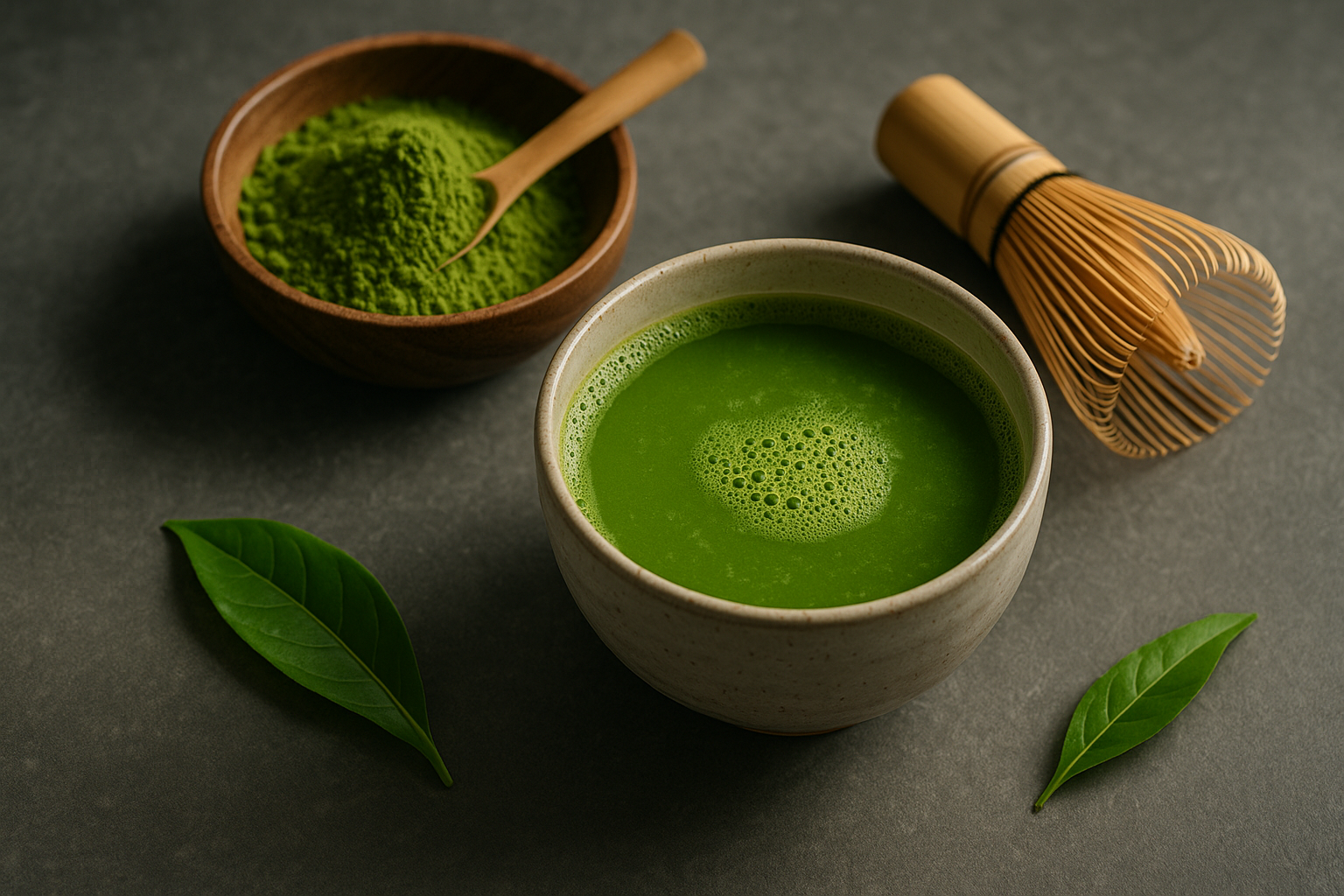Learn About Matcha Tea
Matcha is a bright green powder made from special tea leaves. People around the world enjoy it in drinks, desserts, and recipes. In this article, you will discover how matcha is grown, how it is prepared, and what makes it different from regular tea. It’s a colorful and interesting part of tea traditions you can learn about.

Matcha tea stands as one of Japan’s most treasured cultural exports, representing centuries of tradition in a single, vibrant green cup. Unlike regular green tea where leaves are steeped and discarded, matcha involves consuming the entire tea leaf in powdered form, delivering a more potent flavor profile and concentrated nutritional benefits. The growing global popularity of matcha has created a thriving market for wholesale distribution, with businesses and consumers seeking authentic, high-quality sources directly from Japan.
What Makes Japanese Matcha Wholesale Unique?
Japanese matcha wholesale offers distinct advantages compared to matcha sourced from other regions. Japan’s climate, particularly in regions like Uji in Kyoto Prefecture, Nishio in Aichi Prefecture, and parts of Shizuoka Prefecture, provides ideal growing conditions for shade-grown tea leaves essential for premium matcha. These regions feature specific soil compositions, temperature variations, and humidity levels that contribute to matcha’s characteristic umami flavor and vibrant color.
Japanese matcha wholesalers typically offer various grades, from ceremonial-grade (highest quality) to culinary-grade (for cooking and baking). The grading system reflects factors including harvest time, processing methods, and parts of the plant used. Ceremonial-grade matcha comes from the youngest tea leaves, which contain fewer stems and veins, resulting in a smoother texture and more delicate flavor profile ideal for traditional tea ceremonies.
How to Identify Quality Matcha Sourcing Suppliers
When evaluating matcha sourcing suppliers, several key indicators help distinguish premium providers from substandard ones. Reputable suppliers provide detailed information about their tea’s origin, including the specific region in Japan where it was grown. They should offer transparency regarding cultivation methods, particularly whether the tea was properly shade-grown (essential for authentic matcha) and if organic farming practices were employed.
Processing methods significantly impact matcha quality. Traditional stone-grinding techniques produce finer powder with better flavor retention compared to machine-ground alternatives. Quality suppliers often specify their grinding methods and may provide information about particle size. Additionally, proper packaging that protects matcha from light, moisture, and oxygen exposure indicates attention to quality preservation.
Established relationships with Japanese tea farmers represent another hallmark of reliable matcha sourcing suppliers. These connections often translate to more consistent quality and authentic products. Many premium suppliers can provide documentation of their sourcing practices, including harvest dates and certification information.
What Are the Benefits of Purchasing Matcha Wholesale Japan?
Businesses can realize significant cost advantages when purchasing matcha wholesale directly from Japanese suppliers. By eliminating middlemen and importing directly, companies can secure better pricing while maintaining higher quality standards. Volume discounts typically become available at various threshold levels, making wholesale particularly attractive for cafés, bakeries, and specialty tea shops.
Direct wholesale relationships with Japanese suppliers often provide access to exclusive matcha varieties not widely available through retail channels. These might include limited harvests, special blends, or region-specific varieties with unique flavor profiles. Many Japanese wholesalers also offer customization options, including private labeling opportunities and custom packaging solutions that help businesses differentiate their offerings.
Purchasing directly from Japanese sources also ensures greater authenticity and quality control. Reputable Japanese suppliers adhere to strict cultivation and processing standards, resulting in products with consistent color, flavor, and nutritional content. This consistency becomes particularly important for businesses building product lines around matcha’s specific characteristics.
Where Can You Find Matcha Tea Online?
The digital marketplace offers numerous options for sourcing matcha tea online, ranging from direct-to-consumer Japanese tea farms to specialized importers and large e-commerce platforms. Dedicated matcha retailers like Ippodo Tea, Mizuba Tea Co., and Matchaful specialize exclusively in high-quality Japanese teas and provide detailed information about sourcing, processing, and preparation methods.
Japanese tea exporters such as Marukyu-Koyamaen, Aiya, and Ito En maintain online presences allowing international customers to purchase directly from established Japanese tea companies. These sources often provide the most authentic products with direct connections to specific growing regions. For businesses seeking larger quantities, wholesale-specific platforms like Alibaba, Global Sources, and industry-specific tea marketplaces connect buyers with verified Japanese suppliers.
When purchasing matcha online, verification becomes crucial. Look for suppliers providing certificates of analysis, organic certifications when applicable, and detailed information about radiation testing (particularly important following the Fukushima incident). Customer reviews and industry recognition, such as awards from tea competitions, can provide additional confidence in supplier quality.
What Are the Current Matcha Wholesale Price Trends?
Matcha wholesale pricing varies significantly based on quality grade, quantity purchased, and market conditions. Current market trends show ceremonial-grade matcha typically wholesaling between $15-30 per 100g when purchased in kilogram quantities, while culinary-grade matcha ranges from $8-15 per 100g in similar volumes. Premium, single-estate ceremonial matcha may command prices exceeding $40 per 100g even in wholesale quantities.
| Matcha Grade | Typical Wholesale Price (per kg) | Minimum Order Quantity | Primary Uses |
|---|---|---|---|
| Ceremonial | $150-300 | 1-5 kg | Traditional tea preparation |
| Premium Culinary | $80-150 | 5-10 kg | Lattes, high-end baking |
| Standard Culinary | $50-80 | 10-25 kg | Baking, ice cream, general food |
| Ingredient Grade | $30-50 | 25+ kg | Mass production, supplements |
Prices, rates, or cost estimates mentioned in this article are based on the latest available information but may change over time. Independent research is advised before making financial decisions.
Several factors influence wholesale pricing, including harvest season (first flush commanding premium prices), processing methods (stone-ground typically costs more than machine-ground), and market demand. Recent years have seen increasing prices due to growing global popularity coupled with limited production capacity in premium Japanese growing regions. Climate factors, including unusual weather patterns affecting harvest yields, have created additional price volatility.
Understanding Matcha Quality Classifications
Quality classification systems help businesses and consumers navigate the matcha marketplace. Japanese matcha traditionally falls into two main categories: ceremonial grade (intended for drinking as tea) and culinary grade (for cooking and baking). Within these categories exist further subdivisions reflecting subtle quality variations.
Ceremonial grade matcha features vibrant green color, smooth texture, and complex flavor profiles with sweet umami notes and minimal bitterness. This highest-quality matcha comes from the first harvest (first flush) of shade-grown tea plants, using only the youngest, most tender leaves. The stone-grinding process for ceremonial matcha typically occurs at slower speeds to prevent heat damage to the delicate compounds responsible for flavor and nutritional content.
Culinary grade matcha, while still high-quality, may incorporate slightly more mature leaves, resulting in stronger, sometimes more bitter flavors that stand up well to mixing with other ingredients. The color typically appears slightly less vibrant, and the texture may be somewhat coarser. This grade remains ideal for lattes, baking, and cooking applications where matcha’s flavor needs to withstand dilution or heating.
Matcha tea represents a unique intersection of Japanese cultural heritage, agricultural expertise, and growing global appreciation for specialized tea products. Whether sourced through wholesale channels for business purposes or purchased online for personal enjoyment, understanding matcha’s quality indicators, proper sourcing methods, and fair market pricing helps ensure authentic experiences with this remarkable tea.




